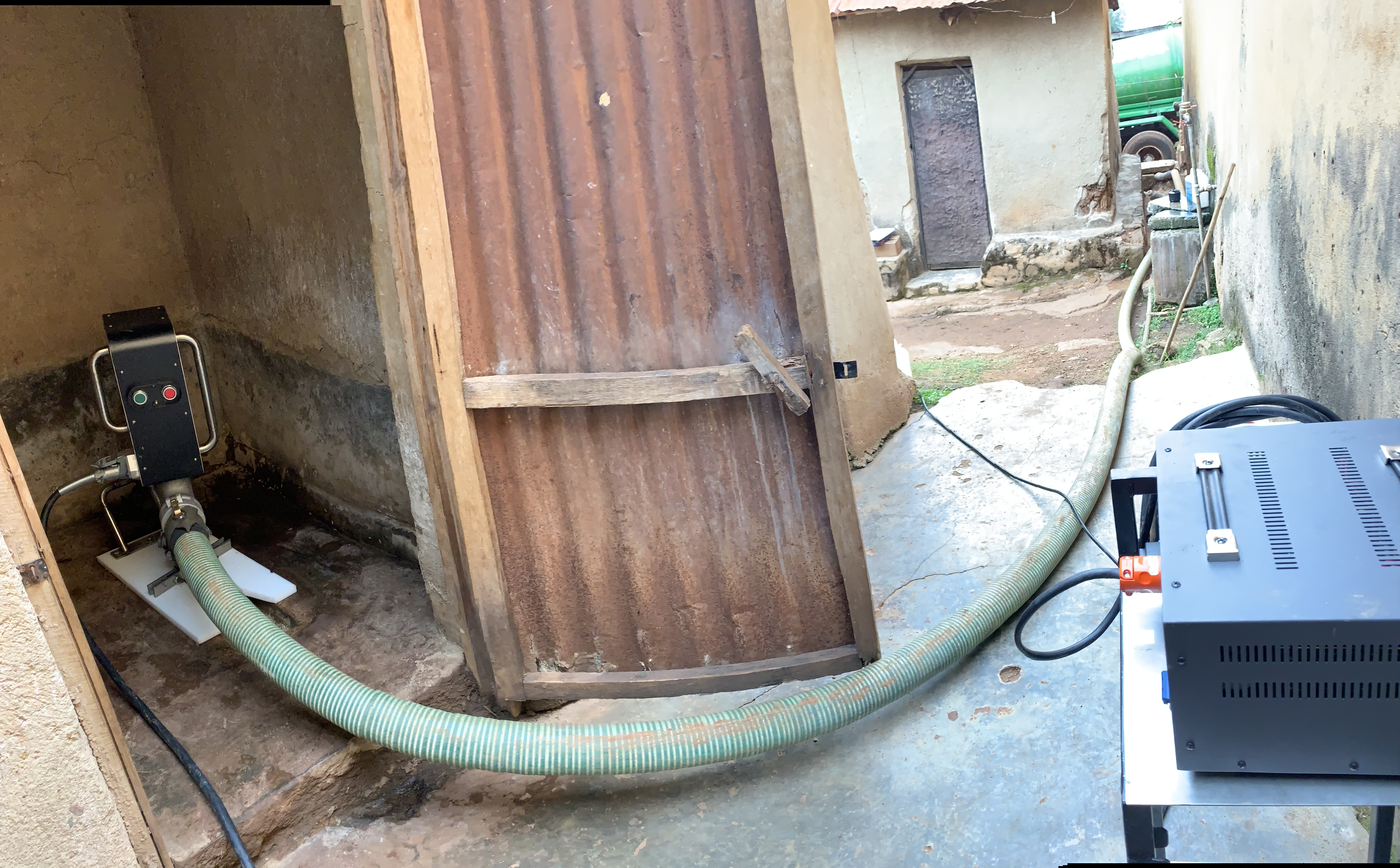
Thanks to a recent grant from the Bill and Melinda Gates Foundation, an invention from the Civil, Construction, and Environmental Engineering is getting closer to improving sanitation conditions and providing economic opportunities for men and women around the world. The philanthropic organization awarded Professor Francis de los Reyes a total of $500,000 to bring the Flexcrevator, a unique pit latrine emptying device to market and study gender barriers to latrine emptying.
The problem is this: nearly two out of every seven people on this earth depend on using pit latrines for basic sanitation needs. Areas lacking safe sanitation systems also typically do not have adequate trash management infrastructure. Without systems to manage solid waste, people often throw trash like plastic bags, rags, menstrual materials, and condoms directly in the pit. The garbage in the pits often interferes with mechanized ways to perform pit latrine emptying and forces people to perform the undignified and unsanitary job of removing waste from latrines by hand. Historically, the act of manual pit latrine emptying has been performed by men in different parts of the world.
NC State developed the Flexcrevator, the only all-in-one machine that simultaneously removes fecal sludge in the presence of trash. This is done through a unique dynamic screen composed of a rotating auger and perforated pipe placed at the end of a vacuum source. The parts work together and allow a sanitation worker to pump fecal sludge while leaving trash inside the pit. This innovation has been in the making at NC State for eight years (link), has been tested over the years in Zambia, Madagascar, Malawi, Rwanda, Kenya, South Africa, and India. NC State’s work has yielded two patents and gained international recognition by winning top prize with the RELX Environmental Challenge in 2018 (link).
Internal market studies show that the Flexcrevator can bring large profits to individuals. However, it is not yet known how regional gender dynamics prevent access to the device. While the Flexcrevator provides an opportunity for economic advancement for the world’s poorest, the Flexcrevator will continue to disproportionately benefit men if the team does not explicitly consider why gender gaps exist in the sanitation value chain. With help from the Gates Foundation, the de los Reyes lab is partnering with:
- iDE Ghana: A non-profit that aims to enable local social entrepreneurs
- Sama Sama : A spin-out of iDE Ghana that has built toilets throughout Ghana
- Dr. Cassandra Workman: An assistant professor of anthropology at UNC-Greensboro
- Triangle Environmental Health Initiative: A sanitation markets and technology consulting firm.
The team will field test the Flexcrevator, collect information on business profitability, and understand gender barriers to pit emptying. By the end of the project the team aims at licensing the technology partners by late 2020. For more information contact Jocelyn Tsai (jctsai@ncsu.edu) or Dr. Francis de los Reyes (fldelosr@ncsu.edu).